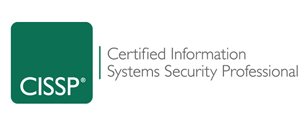What is the difference between CISSP CAT and CISSP Linear examinations?
The CISSP Computerized Adaptive Testing (CAT) exam is offered to those who wish to attempt the certification exam in English. It comprises 100 to 150 multiple choice and advanced innovative questions which you should attempt in three hours.
The CISSP Linear exam is offered to those attempting the exam in French, German, Brazilian Portuguese, Spanish, Japanese, Simplified Chinese, and Korean. This exam comprises 250 multiple choice and advanced innovative questions and is six hours long.
What does the CISSP exam cover?
Like this CISSP training, the CISSP exam covers the following domains, which are shown with their average weights:
-
- Security and Risk Management (15%)
- Asset Security (10%)
- Security Architecture and Engineering (13%)
- Communication and Network Security (14%)
- Identify and Access Management (13%)
- Security Assessment and Testing (12%)
- Security Operations (13%)
- Software Development Security (10%)
What if I do not have the required experience to become a CISSP?
In case you do not have the required experience by the time you pass the exam, you can become an Associate of (ISC)2. You will then have six years to earn the required experience to become a Certified CISSP.
Will I need to be recertified?
Yes, you will need to recertify every three years. For this purpose, you need to earn 120 continuing professional education (CPE) credits and pay an Annual Maintenance Fee (AMF). You only need to pay a single AMF for all your (ISC)2 certifications.
What is the Online Endorsement Application?
Candidates who pass the CISSP certification exam will need to start the online Endorsement Application. This process entails having your application endorsed and signed by an active (ISC)2 credential holder. If you do not know someone, (ISC)2 will act as your endorser. This process should be completed within nine months. You may also be subjected to an audit and prompted to provide additional information for verification.








